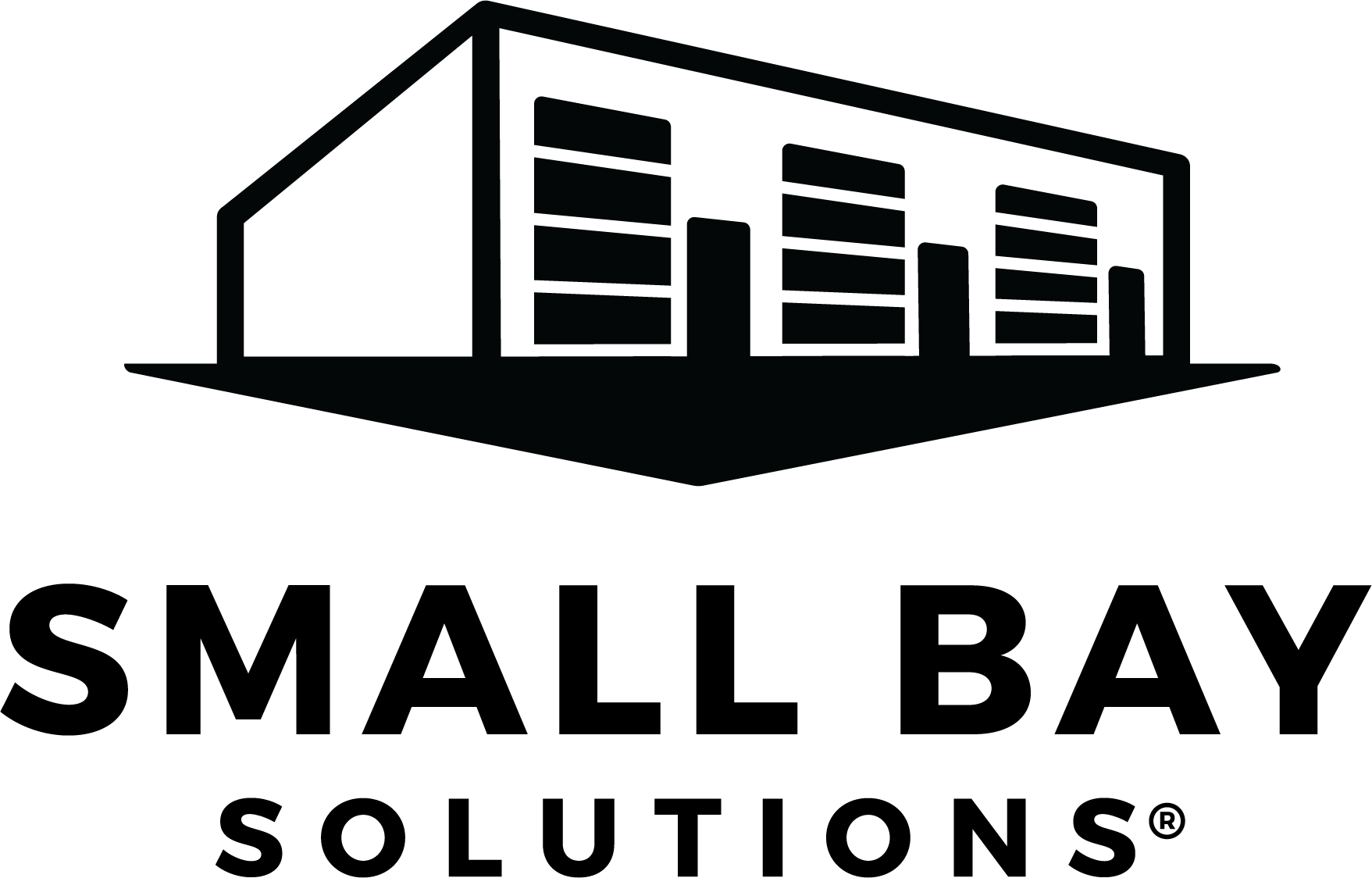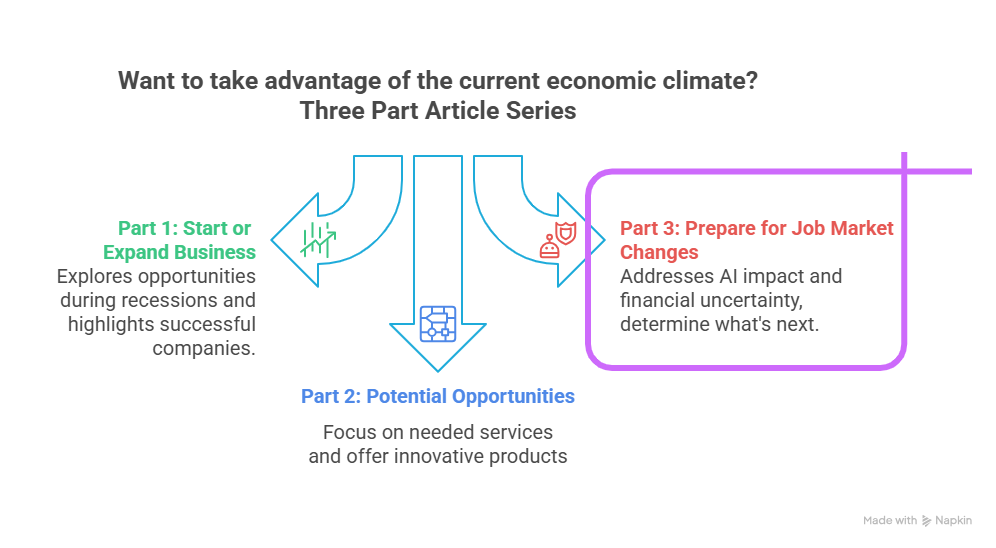Let’s just say it—the job market is changing, and fast. If you're like most people, you're probably hearing about layoffs, AI, inflation, political chaos, and global uncertainty—all in the same week—and thinking, what in the world am I supposed to do with this information? You're not alone, and you're not crazy. This is a lot.
So, let’s talk about it honestly. Because the goal of this series has always been to shift from panicked to prepared.
Here’s some surprisingly good news: According to the U.S. Chamber of Commerce, “America is facing a worker shortage crisis.” In Arkansas, for example, there are 69 workers for every 100 open jobs. So yes—opportunities exist. But the real question is, are they opportunities you actually want?
If you’re in a job that doesn’t feel stable, or worse, doesn’t feel meaningful, this might be your sign to start preparing for what’s next. That might mean finally diving into that side hustle idea or simply upskilling to become the most AI-savvy person in your office.
What’s Really Going On With Layoffs and AI?
According to the World Economic Forum, while 170 million new jobs are expected to emerge in the next few years, millions will also disappear—mostly from entry-level white-collar roles. For example AI could replace:
- 53% of tasks done by market research analysts
- 67% of tasks by sales reps
- 9% of managerial tasks
- 21% of executive-level roles
This tells us two things: entry-level roles are shrinking, and the value of thinking, strategizing, and leading is growing.
So what do you do if you’re currently in one of those vulnerable roles? You pivot. You start learning. You consider taking your future into your own hands.
“AI won’t replace you. A person using AI will.” — World Economic Forum, 2023
AI: Threat or Tool?
Let’s stop thinking of AI as the thing that’s going to take your job and start thinking of it as the tool that can help you level up. Jobs aren’t just being destroyed—they’re being reshaped.
If you’re wondering which careers are seeing the biggest growth, skilled trades, healthcare, tech consulting, AI training, and education and content creation are all at the top of the list for secure and future-ready roles in a shifting job market.
These roles can’t be easily replaced. They require critical thinking, human connection, and adaptability. These are the kinds of skills that’ll keep you relevant, valuable, and hard to replace—so let’s talk about how to actually build them into the job you already have.
How to Build Critical Thinking, Human Connection, and Adaptability Into Your Current Role
- Start asking better questions. Don’t just do the task—ask why it matters, how it could be better, and what’s not being said. That kind of thinking helps you spot patterns and problems others miss.
- Say yes to new challenges. If there’s a project outside your comfort zone, take it. If there’s a cross-functional team or volunteer opportunity, jump in. Growth doesn’t happen where it’s comfortable.
- Build real relationships. Be the person who listens well, follows up, and brings people together. It’s harder than ever to replace someone who makes other people’s jobs easier.
- Make one improvement a month. That could be a better system, a cost-saving idea, or even a client experience tweak. Small wins build big trust.
- Get curious—and stay curious. Make it a habit to learn. Set aside time each week for a podcast, an article, or a course. You’ll stay sharper, faster, and more confident navigating change.
The Entrepreneurial Option: A Wild, Worthwhile Ride
Okay, maybe you are reading this article because you are ready to do something new. I've been there and I'm doing this, entrepreneur thing, so I get it.
If you're ready to get off the corporate rollercoaster and onto the entrepreneurial one, be warned—it's wild. But it might just be the ride of your life. It’s full of unexpected turns, high highs, and low lows, but when it’s working, it’s energizing in a way a traditional job may never be.
This is your moment to put your head down and build—whether it’s your skillset, your confidence, or your business. If you’ve even thought about going out on your own, now’s the time to prepare.
Okay, So How Do You Start Preparing?
This is an actual list of things my husband and I both did when we left our careers in education to start our own businesses over 10 years ago. I created this framework and when it was so successful my husband used the same steps to leave his education career three years later.
1. Take Classes and Learn for Free. You don’t need a big budget to level up. Sites like Coursera and LinkedIn Learning have free and low-cost courses. They also will give you certificates to post on your LinkedIn profile If you're local, check out our Small Bay Solutions® free lunch-and-learn sessions.
2. Find a mentor. The SBA can help you, but so can your LinkedIn network. You'd be surprised how willing people are to share advice when they’re passionate about what they do.
3. Interview people in the field you are considering. Go out for coffee, but come prepared with questions. It’ll stretch you and help you learn. It might be a little awkward to ask at first but it’s good for your brain to be uncomfortable. There's lots more of that when you start something new
4. Read books and listen to podcasts specific to your business or industry. I like YouTube for podcasts because I can increase the play back speed up to 2x and get through it faster.
5. Join a national organization or attend a conference or convention on your topic. I once went to the national outdoor retailers show in Denver just to see if anything sparked—and even though I didn’t walk away with a new business idea, it was a blast.
6. Build While You’re Still Getting Paid. Don’t quit your job tomorrow. Seriously. Keep your paycheck while you test ideas, build skills, and validate your next step. Lenders want to see income to give you loans and offer lines of credit.
7. Use the Well Established Resources Available to You.
- The SBA has free resources and online learning tools. I mentioned them yesterday but they are worth repeating because of all the rabbit holes of information there.
- The ASBTDC in NWA offers incredible free support like help with business plans, access to capital, market research and much more.
8. Learn What It Actually Takes to Run a Business. Being great at your craft doesn’t automatically mean you’re great at running a business. Take the time to learn it right. I always recommend reading Profit First to shift your mindset around money early on.
9. Become a total nerd. Dive deep into everything related to what you're passionate about.
Life Happens in Seasons
This all might sound crazy—starting something new during a downturn—but it can be done. I often look back on my life in seasons. There was the season of no kids, total freedom, and lots of hiking and backpacking. The season where we lived in the best neighborhood ever and hosted the most epic Monday Night Football parties. The season when we had tons of family close by and celebrated every holiday together. And then there was the hard season—both of us working full-time, my husband teaching at night, coaching at the high school, taking college courses, and we had two babies under two. We barely saw each other. But that season stretched us, and it eventually led to a better season.
So, here’s my challenge to you: Look at this season—right now—and decide whether you’re going to be paralyzed by the uncertainty or energized by the possibility. Because how you respond to this moment will shape the story you tell five years from now.
And don’t forget—you can put your head down and do almost anything for a year, or six months, or whatever it takes to move closer to joy. We might be headed into a season of big change. Many will freeze, unsure of what to do next. But don’t be afraid to take a chance. Let this be the time you get inspired, educate yourself, and solve a problem the world needs fixed—because one thing we’ll never run out of is problems that need smart, thoughtful people to tackle them.

